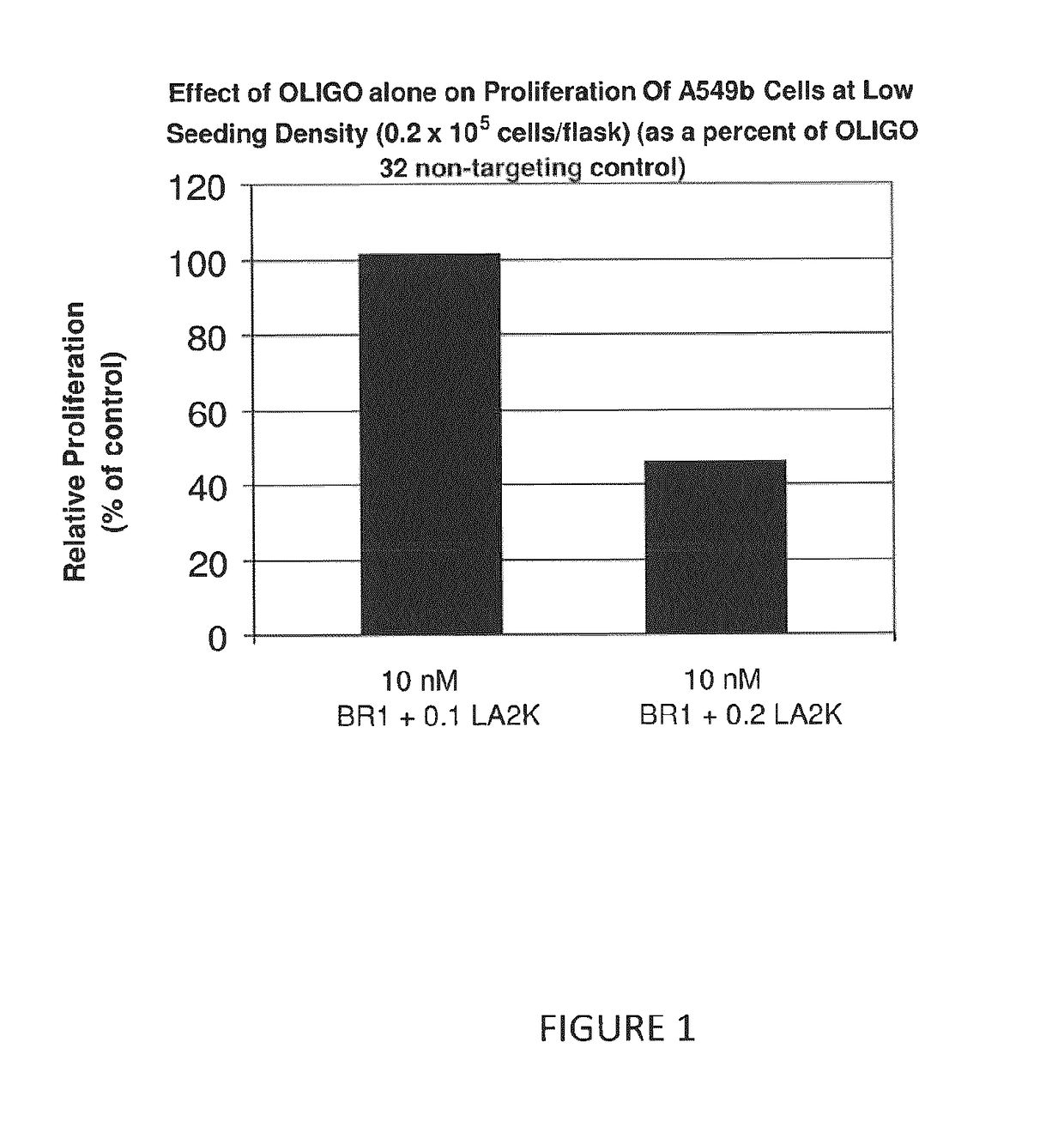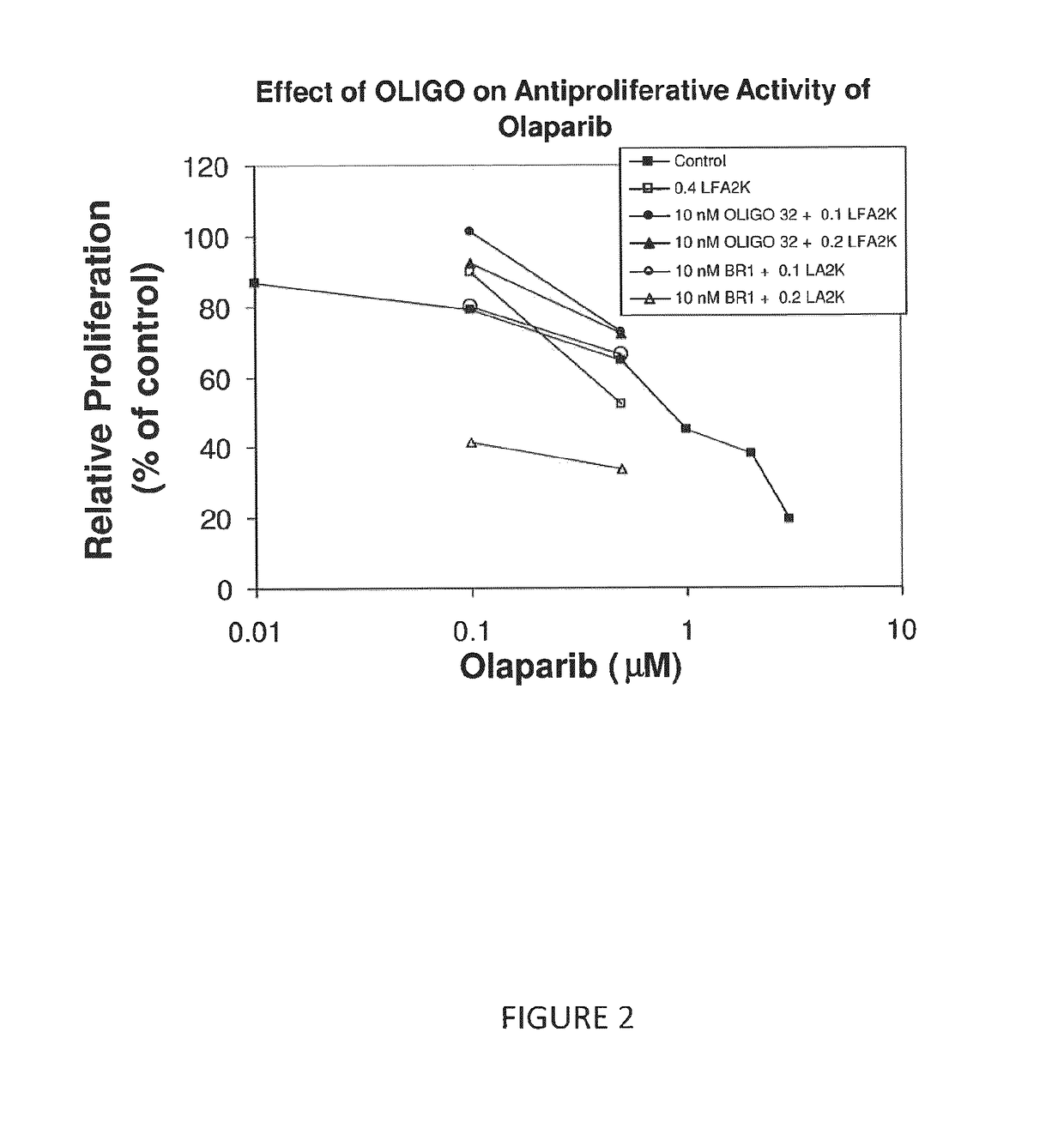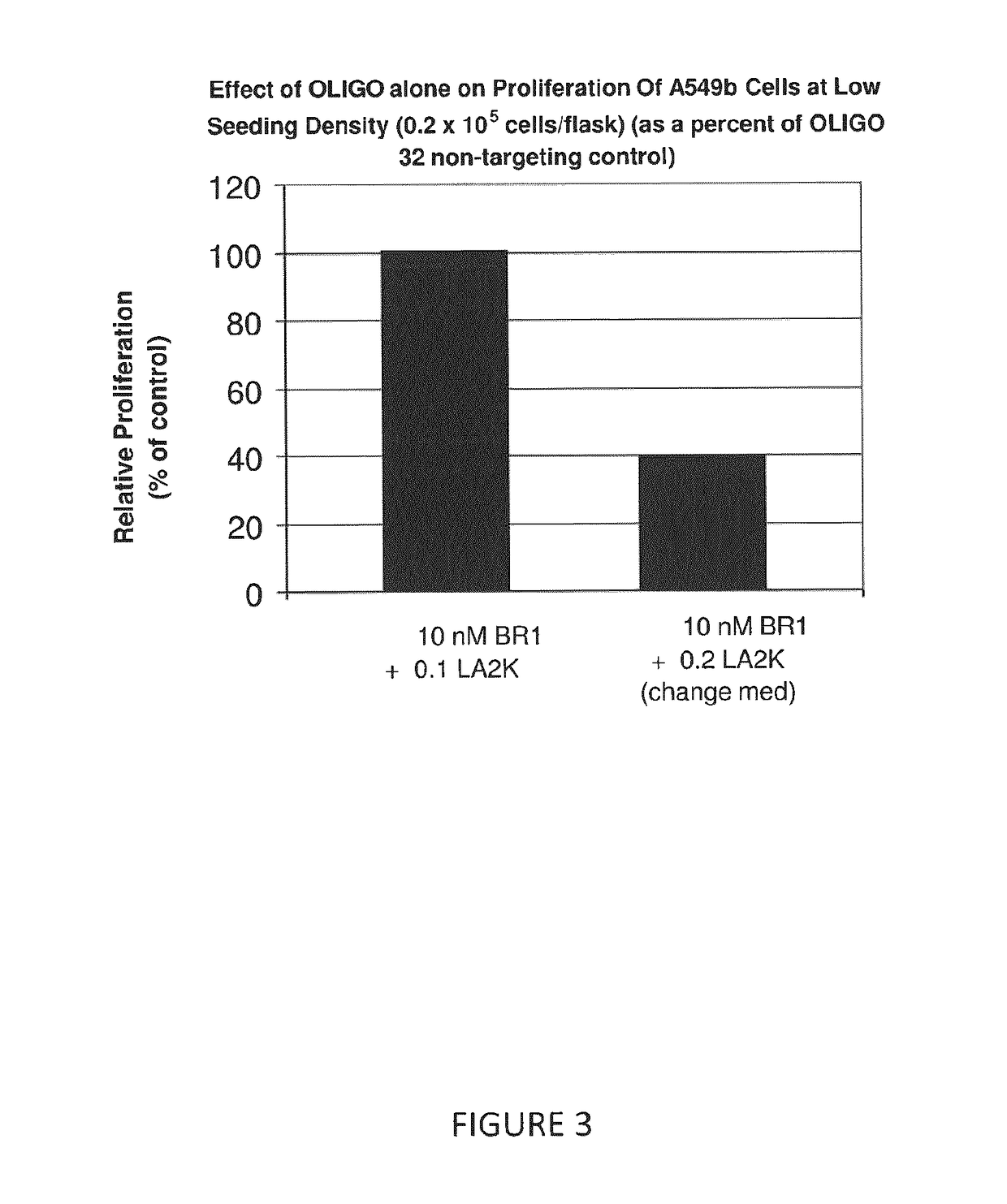Methods of treating cancer by inhibition of DNA repair proteins using antisense based therapies
a technology of dna repair protein and antisense, applied in the field of cancer therapy, can solve the problems of inability to detect dna repair proteins,
- Summary
- Abstract
- Description
- Claims
- Application Information
AI Technical Summary
Benefits of technology
Problems solved by technology
Method used
Image
Examples
example 1
Antisense Oligonucleotides to BRCA2
[0275]Three antisense oligonucleotides (OLIGOs) to BRCA2 were designed. The first OLIGO, named BR1, was based on the sequence of a siRNA (siRNA J-003462-08-0005) commercially available from Dharmacon Inc. (Lafayette, Colo.). BR1 has the following sequence:
[SEQ ID NO: 17]5′-guaucuCTTGACGTuccuua-3′ (40% GC content)
[0276]Wherein the lower case letters represent 2′O-methyl RNA and the upper case letters represent DNA. The OLIGO was fully phosphorothioated. The BR1 OLIGO targets the coding region, bases 7241-7259 of the BRCA2 mRNA, specifically, the following BRCA2 mRNA sequence:
[SEQ ID NO: 18]5′-UAAGGAACGUCAAGAGAUAC-3′
[0277]Two other OLIGOs, BR2 and BR3, were designed using the NCI web-based BLAST program. The program was asked to design sequence-specific PCR primers. Pairs of primers were obtained for the coding region and the 3′-UTR of the BRCA mRNA. Based on these sequences, antisense sequences were designed and their specificity to BRCA2 mRNA was c...
example 2
n of Proliferation of A549B Cells by an Antisense Oligonucleotide to BRCA2
[0284]The effect of an antisense oligonucleotide against BRCA2 on proliferation of non-small cell lung cancer (NSCLC) cells was tested. The BRCA2 antisense oligonucleotide tested in this experiment was BR1, described below. The experiment was carried out as follows.
Cell Culture Techniques.
[0285]Cell culture medium was purchased from Wisent, Inc. (St-Bruno, Quebec, Canada). Fetal bovine serum and Lipofectamine 2000 were purchased from Invitrogen, Inc. Cell culture plasticware was obtained from Invitrogen (Life technologies, Burlington, Ontario, Canada), Fisher Scientific (Unionville, Ontario), and VWR Canlab (Mississauga, Ontario).
[0286]Cultured cell lines were maintained in minimum essential medium a with nucleosides plus 10% fetal bovine serum and penicillin (50 units / mL) / streptomycin (50 mg / L) (growth medium). Cultures were incubated in a humidified atmosphere of 5% CO2 at 37° C. Cultured cell lines were mai...
example 3
n of Proliferation of A549B Cells Pretreated with an Antisense Oligonucleotide to BRCA2 by Olaparib
[0292]This experiment examined the effect of pre-treating A549b cells with the BRCA2 antisense oligonucleotide BR1 on the ability of the PARP (poly(ADP ribose) polymerase) inhibitor olaparib to inhibit proliferation of these cells. These experiments were carried out as follows.
[0293]Cells were cultured and maintained as described in Example 2. The antisense oligonucleotide sequences used were also as described in Example 2.
[0294]Cells were treated with OLIGOs and / or olaparib as follows.
[0295]OLIGOs were introduced into cells with the use of Lipofectamine 2000 (LFA2K) (Invitrogen, Burlington, Ontario, Canada). OLIGOs were mixed with LFA2K at a ratio of 0.2 μg / ml per 10 nM OLIGO. The mixture was prepared at 11× the final concentration to which cells were exposed, so that 200 μL was added to 2 mL of medium in which cells were plated. After incubating at room temperature for 20 minutes, ac...
PUM
| Property | Measurement | Unit |
|---|---|---|
| time | aaaaa | aaaaa |
| length | aaaaa | aaaaa |
| permeate | aaaaa | aaaaa |
Abstract
Description
Claims
Application Information
 Login to View More
Login to View More - R&D
- Intellectual Property
- Life Sciences
- Materials
- Tech Scout
- Unparalleled Data Quality
- Higher Quality Content
- 60% Fewer Hallucinations
Browse by: Latest US Patents, China's latest patents, Technical Efficacy Thesaurus, Application Domain, Technology Topic, Popular Technical Reports.
© 2025 PatSnap. All rights reserved.Legal|Privacy policy|Modern Slavery Act Transparency Statement|Sitemap|About US| Contact US: help@patsnap.com



